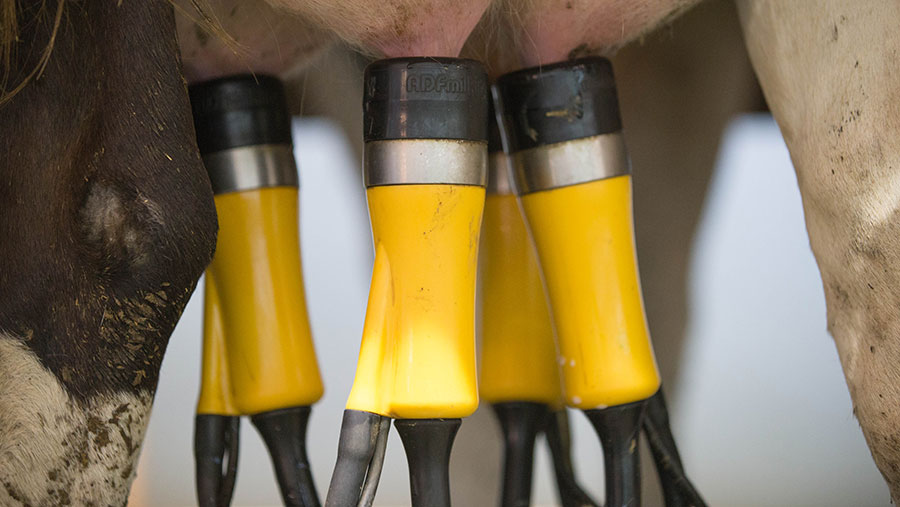Arla holds milk price for fourth month running
 © Tim Scrivener
© Tim Scrivener Arla is holding its milk price for May at 30.23p/manufacturing litre, the fourth consecutive monthly hold for its 2,500 UK full co-op members.
This price is based on every other day collection of at least 1m litres of milk in the top quality band, at 4.2% butterfat and 3.4% protein. At a liquid base of 4% fat and 3.3% protein, it equates to 29.06p/litre.
The May price announcement also includes an unchanged organic milk price, at 41.98p/litre.
See also: Get your farming questions answered in Farmers Weekly‘s Business Clinic
The price hold is a challenge for other milk buyers as spring production ramps up and spot prices stand at just half the Arla price or even less.
Non-co-op milk buyers that have signed up to the dairy voluntary code of practice must announce their June milk prices by the end of this month
Overall, EU milk production is relatively stable and similar to last year, while GB production figures for the past three weeks show milk output running 4-5% higher than last year.
Farmer owner and Arla Foods amba board director Johnnie Russell said the organic market was experiencing pressure in some countries, but was overall stable.
“European markets are unusually quiet overall, with yellow cheese prices having reduced in the past month and butter prices remaining stable,” he said.
“We are now seeing a world commodity market where prices are higher than current European prices. This should be good news for export opportunities across our co-operative.”
INTL FCStone senior commodity analyst Peter Meehan said milk supplies were beginning to gain momentum across Europe.
EU-28 milk collections in February were unchanged on last year, which was their first month without a year-on-year decline since August.
“Higher milk fat and protein content pulled EU milk solid collections ahead of last year for the month by 0.2%,” said Mr Meehan.
Record milk production in the UK (+3.6%) coupled with strong numbers from Ireland (+2.5%), Poland (+4.0%) and Denmark (+2.0%) offset declines for France (-2.5%), the Netherlands (-1.8%) and Spain (-3.0%).
“Further afield, after a strong start to the New Zealand season, dry conditions resulted in its milk production posting a five-year low for March.
“Australian production was also sharply lower in February following a very challenging season for Australian dairy farmers.
“These supply concerns contributed to New Zealand’s GDT posting a record 10 events of gains in a row, having seen its last negative auction in November.
“European dairy exports, meanwhile, were somewhat mixed in February. SMP saw record volumes exported for the month (+24%) as did cheese (+6%). Exports of butter (-17%), infant milk formula (-8%) and whole milk powder (-34%), on the other hand, failed to keep pace with last year.
